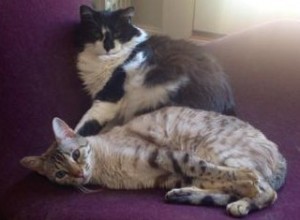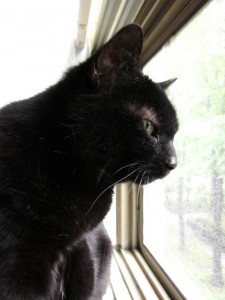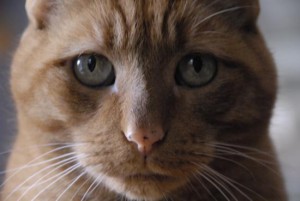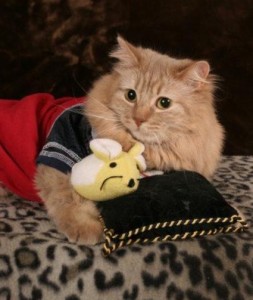
As cats age, we are more likely to start to encounter different health issues. Kidney disease, for example, is extremely common in older cats, as are hyperthyroidism, diabetes, arthritis, high blood pressure, and heart disease. Regular screening, through examinations, blood and urine tests and other diagnostic procedures allows us to detect problems early, when we can make the biggest difference.
Semi-annual physical examinations
The physical exam is always the most important part of your pet’s veterinary visit. We will do a thorough examination of your pet, assessing all the major body systems for early signs of problems. Once your kitty turns seven years of age, we begin to perform a physical exam every six months as opposed to annually.
pet’s veterinary visit. We will do a thorough examination of your pet, assessing all the major body systems for early signs of problems. Once your kitty turns seven years of age, we begin to perform a physical exam every six months as opposed to annually.
Examinations every six months are one of the most important parts of a senior wellness program. Medical problems can occur quickly in our older patients, and early intervention is essential to effectively deal with them.
Senior wellness blood and urine testing
At Yorkville Animal Hospital, we perform regular wellness blood testing in all of our patients. In seniors, however, it becomes even more crucial. Our senior wellness blood and urine tests are specifically designed to screen for the common problems that can be seen in our older cats. These tests include a complete bloodcount, a urinalysis, a thyroid level to screen for hyperthyroidism and a full blood biochemistry profile to assess the liver, kidneys, blood sugar, electrolytes and other major body systems.
 Nutritional counselling
Nutritional counselling
As pets age, their nutritional requirements can change. Obesity can occur in older cats due to a slowing down of the metabolism and a gradual decrease in physical activity. Weight loss can occur because of kidney disease, diabetes, or cancer or other conditions.
We will make specific dietary recommendations for your pet based on his or her body condition score, laboratory testing, and health status. Numerous prescription foods, such as special kidney diets, are available to help us manage the common medical problems seen in our older felines.
Behavioural counselling
Decreased hearing, sight, and smell can commonly lead to behaviour changes in older pets, as can many medical problems. Urinating outside of the litter box, excessive vocalization, restlessness at night, hiding, and confusion are often seen in senior cats. Identifying the underlying cause of these behaviours allow us to help both the quality of life of our patients as well as your own quality of life.
Dental examination, cleaning, and home-care
Dental care has already been discussed under our adult cat preventive health page. In our older patients, good dental care becomes even more important. Gum disease is a source chronic inflammation, pain and stress to an animal, and may be associated with increased risk of problems in other organs, such  as the liver, kidney and heart. In patients with already compromised organ function and immune systems, these added stresses can be potentially dangerous.
as the liver, kidney and heart. In patients with already compromised organ function and immune systems, these added stresses can be potentially dangerous.
Many owners fear dental cleanings because of the anaesthetic required, especially in the older patient. Age itself is no reason, however, to deny a pet a healthy, pain-free mouth. If a pet is otherwise healthy, the risk in the older patient may not be significantly different from that in a younger individual. We have a wide variety of anaesthetics to choose from, and can customize an anaesthetic regime based on your pet’s specific medical history.
 Through pre-anaesthetic diagnostic testing, careful monitoring, the routine use of intravenous fluids during anaesthesia, and a customized anaesthetic protocol, we can go a long way to reduce any risk that may be involved in your pet’s procedure.
Through pre-anaesthetic diagnostic testing, careful monitoring, the routine use of intravenous fluids during anaesthesia, and a customized anaesthetic protocol, we can go a long way to reduce any risk that may be involved in your pet’s procedure.
Blood pressure monitoring
Older cats are at risk of developing hypertension (high blood pressure), especially those cats affected by heart disease, kidney disease or thyroid disease. Hypertension can have deleterious effects on the kidneys, and can cause retinal hemorrhage and detachment which results in sudden blindness. Often, there are no outward signs of hypertension until it is too late.
Routine blood pressure monitoring is performed in all senior cats to screen for this problem. Medication can be used to control high blood pressure easily and effectively.
